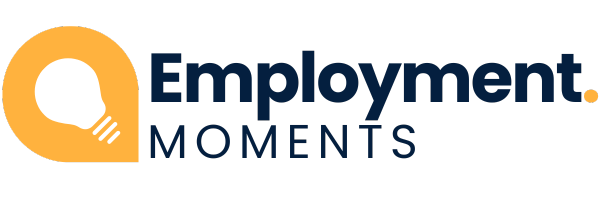In today’s world, planning a successful career is key. Strategic career planning acts as a roadmap. It helps you match your professional goals with your personal values and the job market. By focusing on career development, you’re setting yourself up for happiness and success in your field.
Studies show that those who plan strategically are more likely to be fulfilled in their careers. This article will cover the basics of career planning. It aims to help you build a solid foundation for your future.
Understanding the Importance of Career Planning
Career planning is key to setting goals and making a roadmap to reach them. It involves self-assessment, job market research, and evaluating options. This process leads to a fulfilling career, setting the stage for success.
What is Career Planning?
Career planning is a structured way to develop your career. It helps you find your strengths, interests, and values. This self-knowledge guides your career choices.
It’s a journey that requires regular reflection and adjustments. Starting with a solid plan early can avoid setbacks and boost your career.
Why is Strategic Planning Crucial for Your Career?
Strategic planning is vital for career growth. It gives you a clear path, especially during big career changes. A good plan helps you tackle challenges and grab opportunities.
Research shows it reduces job search stress and boosts career satisfaction. Career planning is not just about getting a job. It’s about building a lasting and rewarding career path.
Setting Career Goals for Success
Setting clear career goals is key for success. Goals act as a roadmap for your professional path. It’s important to know the difference between short-term and long-term goals.
Short-term goals are things you can do in a year. Long-term goals are bigger dreams that take years to achieve.
Defining Short-Term and Long-Term Goals
Short-term goals might be getting a certification or an internship. These are steps to reach bigger dreams. Long-term goals could be getting a certain job or becoming an expert in a field.
Knowing the time frames for your goals helps you stay on track. It keeps you motivated and lets you see how far you’ve come.
Using SMART Criteria for Goal Setting
SMART goals are Specific, Measurable, Achievable, Relevant, and Time-bound. Using SMART goals makes your goals clear and easy to track. For instance, instead of saying “get better at marketing,” a SMART goal would be “finish a digital marketing course by the end of Q3.”
SMART goals help you stay focused and motivated. They make it more likely you’ll reach your career dreams.
| Type of Goal | Example | Timeframe |
|---|---|---|
| Short-Term Goal | Complete an online certification | 3 months |
| Long-Term Goal | Advance to a managerial position | 5 years |
| SMART Goal | Increase sales by 20% in the next quarter | 3 months |
How to Plan a Successful Career
Planning a career involves several steps. First, you need to understand your unique skills and interests. This step helps you find the right career path for you.
Assessing Your Skills and Interests
Assessing your skills and interests is key. You can use self-assessment tools, personality tests, and career counselors. These help you know your strengths, weaknesses, and what you love.
Tools like the Myers-Briggs Type Indicator or the Strong Interest Inventory are helpful. They give you a clear view of your career direction. Knowing your skills well is crucial for making the right career choices.
Creating a Personal Development Plan
A personal development plan is vital for your career growth. It outlines goals to improve your skills, get certifications, and gain experience. For example, if you want to be a manager, look into leadership training on LinkedIn Learning or Skillshare.
It’s important to regularly check and update your plan. This keeps you on track with your career goals.
Networking and Building Professional Relationships
Networking is key to career growth. It opens doors to new chances, mentorship, and advancement. By connecting with others in your field, you gain insights and collaborations not found through job searches alone. Good networking strategies can boost your career path.
The Role of Networking in Career Development
A strong network can unlock many career benefits. Many jobs come from connections, not just job ads. Personal referrals can lead to jobs that traditional hiring might miss.
Networking builds personal relationships, leading to trust and tailored opportunities. It’s a way to grow your career in a meaningful way.
Tips for Effective Networking
Go to industry events and conferences to meet professionals. These are great for making connections. Informational interviews can help you learn about careers and meet people.
Following up with contacts shows you’re professional and serious. Remember, networking is about real connections, not just collecting cards.
Using Social Media to Enhance Your Professional Network
Social media has changed how we network. Sites like LinkedIn and Twitter connect you with experts. A strong LinkedIn profile is important for showing your professionalism.
Engaging with colleagues online can increase your visibility. Social media offers many chances to connect, learn, and grow your network.
Conclusion
Planning a successful career needs careful thought and action. This article covered key points like setting goals, checking your skills, and building a strong network. Each step is important for your career path and keeping up with changes.
Good career advice includes making a plan that fits your dreams and using networking to meet new people. Knowing how to handle these steps well helps you meet your goals and keep improving as you go.
Thinking about your career strategy, remember it’s a journey, not just a goal. Stick to the strategies shared here and start working towards your dream career. With hard work and a willingness to learn, you can achieve great things in your career.

